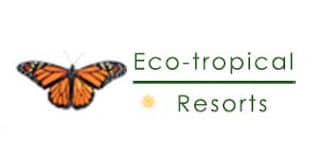I’ve been in a conversation with Ron about “eco certification” and he offers up the idea that the focus ought to include certifying governments, particularly the eco and tourism departments. Ron’s brilliant idea is to create an award program to judge how well government portals walk the talk of responsible travel and ecotourism. I think this topic begs for discussion and would appreciate your thoughts. Ron has given me permission to list his posting here about nominations for government entities promoting ecotourism and responsible travel: Planeta.com — Government websites that spotlight ecotourism and responsible travel are eligible to win Planeta.com’s 2008 award. Nominees include environmental, tourism and other government portals in three categories: local, national and international institutions. Voting takes place July 16-September 1. Information collected will help update the Planeta.com website as we add links.
The award is announced in advance of World Tourism Day (September 27) as way of pointing out best practices.
2008 will be the second year of the Ecotourism Spotlight Award. The first winner was Ecotourism Laos funded by the Laos National Tourism Administration.
HOW THIS WORKS
STEP 1: NOMINATING WEBSITES –
Ideally we would like to hear from respected local tour operators, comunity leaders and journalists who are pleased with how their local, regional and national governments are working to develop and promote ecotourism. Eco travelers who have found helpful websites may also nominate their favorite government portal. Those in charge of government sites can also submit their own work. The first stage is to collect as many quality nominees as possible.
The application asks what information the website includes, particularly the practical information for travelers about ecotourism, responsible travel and sustainability. We ask whether the site includes details about local operators, city parks and public transportation. Does the site includes exterior links to local businesses and conservation groups? Does the site highlight indigenous or aboriginal tourism options?
STEP 2: CHOOSING NOMINEES – Nominees will be shortlisted and the best sites will be asked if they are willing to participate in the award. Those who wish to be considered as nominees will be asked to include a link to the Ecotourism Spotlight Award and if possible, the logo.
STEP 3: VOTING – Voting takes place July 16-September 1. Respondents will be asked to review all the sites and choose their favorite. Multiple votes from a singe user will not be permitted.
SPONSORS
We welcome financial sponsorship to help develop the awards as a means of creating an incentive for communication and showcasing best practices. Those interested in helping finance development should contact us!
PLANETA.COM
Planeta.com is an award-winning website that presents articles and discussion about the environment and travel. The site debuted in 1994. Travelers will find tips on choosing eco-friendly, people-friendly and place-friendly trips. Professionals will find a number of helpful resources, including our Exploring Ecotourism Resource Guide.
WINNING TIPS
Government websites are advised to:
1) Create an informative, content-rich website that provides detailed information for visitors seeking eco-friendly, people-friendly and place-friendly travel. Provide direct links to local operations and seek input from those at the vanguard of in-country ecotourism on making your site even better for national and international visitors.
2) Add the logo and link for the award on your website. Alert visitors to check out all the contenders.
